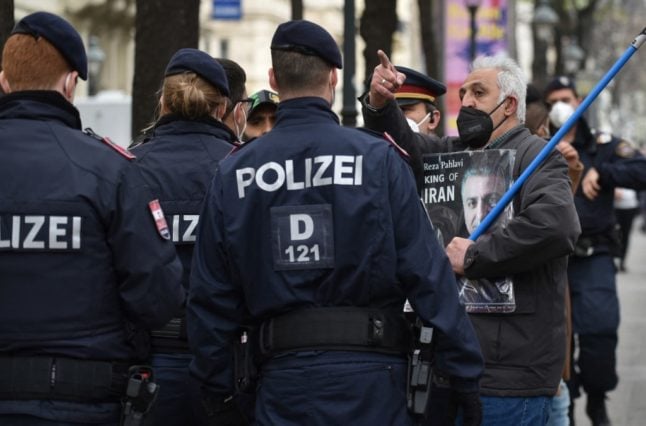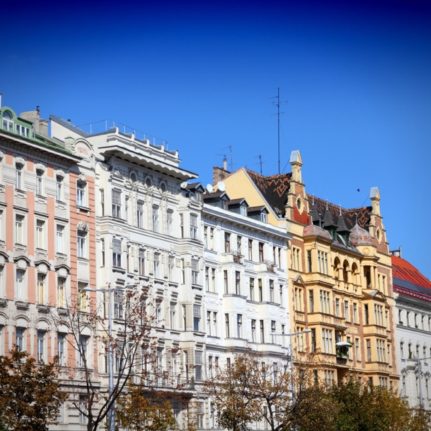Hard lockdown ends in Burgenland
The hard lockdown has ended in Austria’s Burgenland at midnight, but not in Vienna and Lower Austria, broadcaster ORF reports.
Non-essential retail, schools and hairdressers will reopen in Burgenland. A new measure includes a mask requirement in the outdoor areas of three large shopping centres in Oberwart, Mattersburg and Parndorf.
People from the lockdown regions of Vienna and Lower Austria are not allowed to go to Burgenland to shop there. There will be police checks.
Police next to be vaccinated
The police will be the next group to benefit from the increased delivery of corona vaccines to Austria. Interior Minister Karl Nehammer (ÖVP) announced on Friday evening that 10,000 doses of the corona vaccine Moderna will be delivered to the police next week.
Registration for vaccinations starts next week and will be done voluntarily and anonymously. The vaccination of the thousands of police officers will begin around a month later than originally planned, the Wiener Zeitung newspaper reports.
On Friday, Austrian Chancellor Sebastian Kurz promised that all teachers and police officers would be vaccinated by the end of April.
Doctors start to vaccinate in their practices
Vaccination starts today in doctor’s offices in Vienna, broadcaster ORF reports. However, it has started later than originally planned (the end of March) and not nearly as many doctors can vaccinate as originally thought.
More than a thousand doctors in Vienna want to vaccinate, but as of today, just 560 doctors can actually participate. There are only 10,000 vaccination doses available for doctors to use in April.
For the time being, only lung specialists and internal medicine specialists will receive the AstraZeneca Covid 19 vaccine, and Johnson and Johnson once it is approved.
Seven day incidence at 197
According to the AGES database, the seven-day incidence, or number of new coronavirus infections per 100,000 inhabitants over the past seven days, is 196.8. Around 2,076 new infections were reported. There are currently 2,011 people in hospital treatment due to the coronavirus, 546 of them in intensive care units.
Berlin renters envy Viennese
The Wiener Zeitung newspaper reports on the decision to stop the Berlin rent cap, saying tenant associations are looking enviously at Vienna’s comparatively cheaper housing.
It reports after the Constitutional Court stopped the cap, many tenants in Berlin now have to pay more money. It also says many Berlin tenants now have to pay back rent despite having lost income during the pandemic.
READ MORE: Is Vienna really a renters’ paradise?
Criticism of Chamber of Commerce
Austria’s Chamber of Commerce has been criticised in a recent audit office report, Der Standard newspaper reports. It says Viennese undertakers were funded to take a trip to Athens and school fees are paid not only for the offspring of business delegates abroad but also for children in Austria.
The report also contains a number of references to the need for reform of the legal representation of interests of Austrian entrepreneurs due to a rise in consulting costs.
Entrepreneur suggests recovery strategy
Entrepreneur Georg Knill says he wants the government to lower non-wage labor costs, and says costs of the pandemic could be “earned back through growth” in an interview with the Wiener Zeitung newspaper. He adds the recently expired investment bonus could be extended and new aid be made available.
He also suggests reducing corporate tax, a long-term demand from the Federation of Industry, it is reported.
Austria’s ‘comeback plan’ to be decided.
The first specific projects of the Austrian government’s economic “comeback plan” are to be decided upon and presented on Tuesday, broadcaster ORF reports. Chancellor Sebastian Kurz has said Austria will invest “massively” in digitization and greening, according to APA.
This will increase the budget deficit by a further €8 billion. This year’s budget will have €5.5 billion in additional expenditure and €2.6 billion in shortfalls, according to Finance Minister Gernot Blümel .



 Please whitelist us to continue reading.
Please whitelist us to continue reading.
Member comments